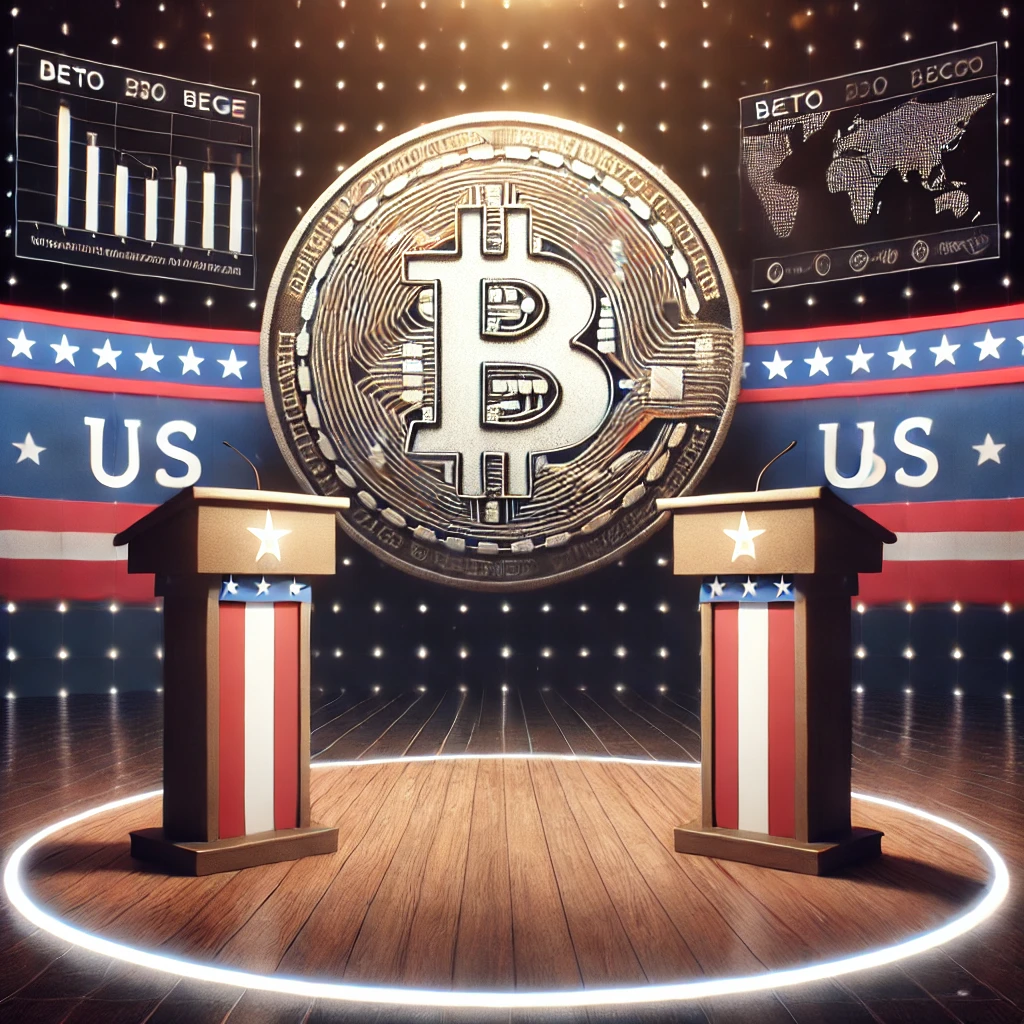In the latest U.S. presidential debate between Donald Trump and Vice President Kamala Harris, one topic was notably absent—cryptocurrency. Despite the growing significance of digital assets in the global economy, neither candidate touched on this critical issue, leaving the crypto community wondering what the future holds for regulatory policies and blockchain innovation in the U.S.
As digital assets become an increasingly integral part of the global financial ecosystem, the absence of cryptocurrency discussions in political debates like this one is raising concerns among crypto advocates. The U.S. plays a pivotal role in shaping international crypto policies, and the lack of clarity on how the next administration plans to approach digital currencies is leaving many in the industry anxious.
Why Was Crypto Left Out?
There could be several reasons why cryptocurrency was not discussed during the Trump-Harris debate. One possibility is that both candidates are more focused on pressing issues like the economy, healthcare, and social justice, which take priority during campaign season. Additionally, the cryptocurrency industry, while growing rapidly, remains a niche topic that has yet to reach the broader public consciousness in the same way as other economic issues.
“We were expecting at least a mention of digital assets, especially given the recent rise in regulatory discussions around stablecoins and blockchain technologies,” said a leading crypto advocate. “The silence on this front leaves us with uncertainty.”
The Regulatory Silence: Implications for Crypto Investors
For the crypto community, the omission of digital assets from political discourse could be seen as both a challenge and an opportunity. On one hand, without clear regulatory guidelines, the industry faces continued uncertainty, particularly regarding taxation, investment opportunities, and innovation policies. On the other hand, the absence of regulation could allow for more organic growth in the short term, without the constraints of heavy-handed government intervention.
Investors are left to wonder how the U.S. government will approach blockchain technology and cryptocurrencies in the coming years. Given the rapid growth of decentralized finance (DeFi) and the increasing use of stablecoins, many expected these topics to be on the political agenda.
Global Implications: The U.S. Crypto Stance Matters
What the U.S. decides to do—or not do—about cryptocurrency regulation has global ramifications. The U.S. remains one of the largest economies in the world, and its financial regulatory stance often sets the tone for other nations. If the next administration does not prioritize cryptocurrency regulation, it could slow down international efforts to establish cohesive, globally-recognized standards for digital assets.
Countries like China and the European Union are making strides in digital currency innovation, with China pushing ahead with its own central bank digital currency (CBDC). If the U.S. does not act soon, it risks falling behind in the blockchain revolution, which could affect its financial standing in the global economy.
What Does the Future Hold for U.S. Crypto Regulation?
While the lack of cryptocurrency discussion in the debate was disappointing, it doesn’t necessarily mean that the issue will be ignored by the next administration. Several crypto-related bills have been circulating in Congress, and key players in the financial industry are advocating for clearer regulations.
With the continued rise of Bitcoin, Ethereum, and other digital currencies, it’s only a matter of time before cryptocurrency becomes a major political talking point. Until then, the industry will have to navigate the murky waters of regulatory uncertainty while pushing for greater recognition on the political stage.
Conclusion: The Crypto Community Is Still Waiting
For now, the crypto industry continues to operate in a state of ambiguity when it comes to U.S. regulation. The Trump-Harris debate may have overlooked the topic, but as digital currencies become more integrated into global finance, it’s inevitable that future political discussions will have to address this growing market. Investors and innovators will need to stay vigilant, keeping an eye on both political shifts and regulatory developments to prepare for what comes next.
This article reflects the current state of U.S. political discourse on cryptocurrency and what the absence of this topic in recent debates could mean for the future of the industry. As always, individuals and investors should keep an eye on regulatory developments and stay informed about the broader economic and political landscape.



